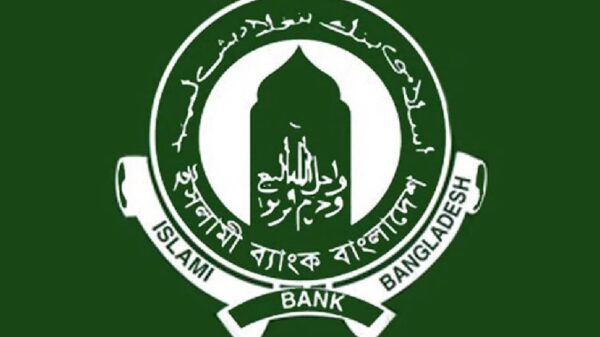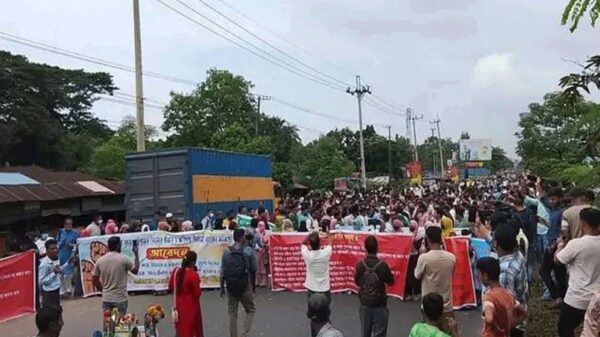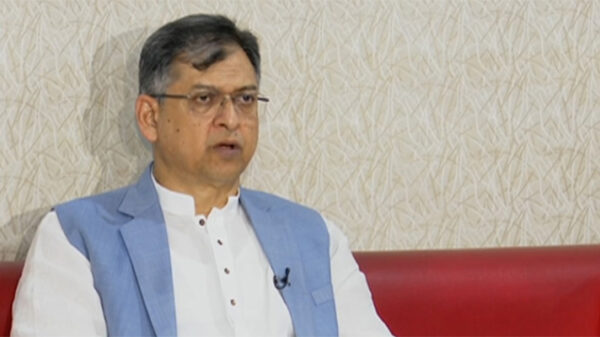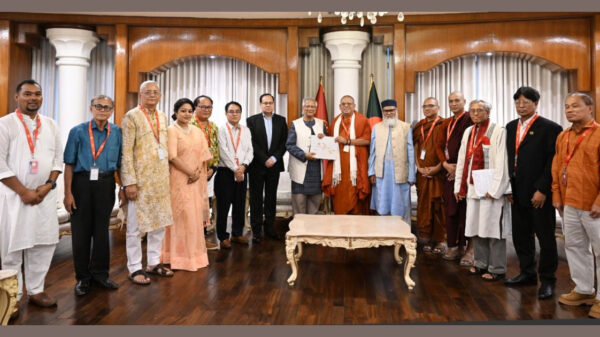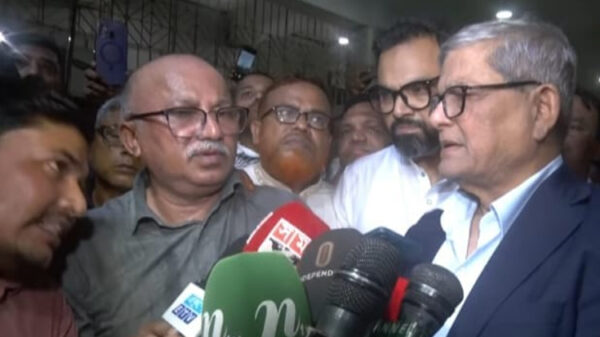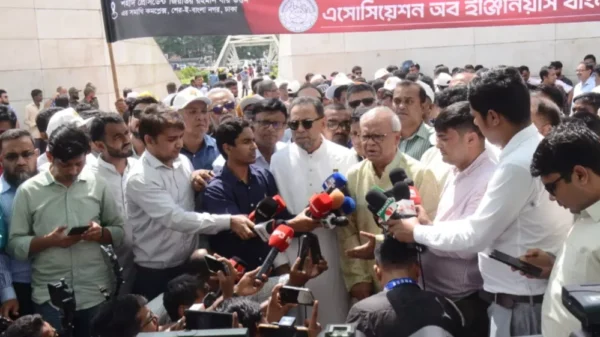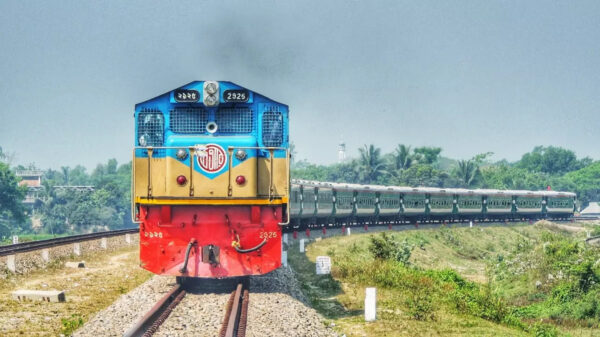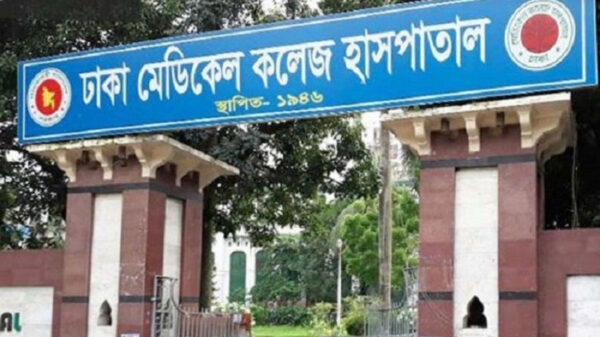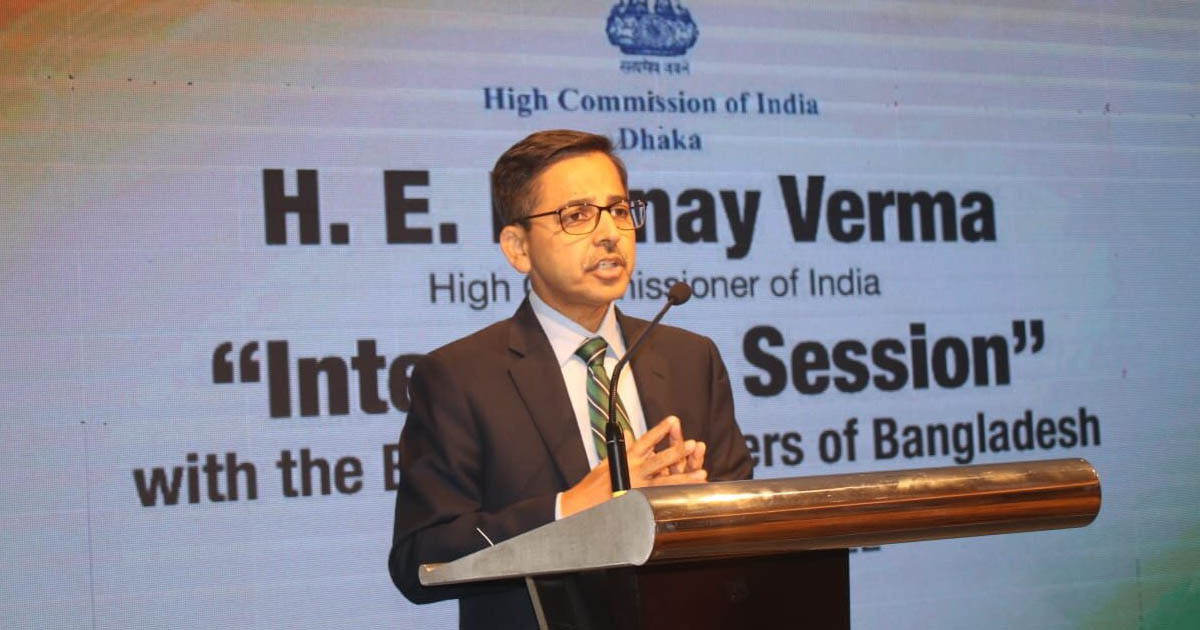Staff Reporter:
Indian High Commissioner to Bangladesh Pranay Verma on Tuesday said the future links between Bang-ladesh and India would be shaped by multimodal connectivity, including through road and rail, inland waterways, coastal shipping, as well as energy and digital connectivity.
He emphasized the long-term significance of connectivity in facilitating closer economic, cultural, and people-to-people ties.
With a contiguous geography and shared history and culture, the high commissioner said, raising the scope and quality of connectivity is a common aspiration, as well as a driver of India’s growing partner-ship with Bangladesh.
Verma was invited to deliver a keynote address at a seminar organized by Unnayan Shamannay on “Mul-timodal Connectivity” between Bangladesh and India.
The event was organized by former governor of Bangladesh Bank Prof Dr Atiur Rahman and chaired by Prof Dr. Delawar Hossain from Department of International Relations in Dhaka University.
Cultural and historical relations between India and Bangladesh, as well as their geographic proximity, need to be leveraged to materialize the economic potentials, said the envoy.
He said the governments of both the countries and other stakeholders are working relentlessly to enhance connectivity infrastructure to bolster intraregional trade and have achieved commendable progress during the recent years.
Expert discussants at the seminar were- Professor Mustafizur Rahman, Distinguished Fellow, CPD, Neelima Akhter, Additional Secretary (Road Transport & Highways Division), T.I.M. Nurul Kabir, Ex-ecutive Director, Foreign Investors Chamber of Commerce and Industry, Ahsan Khan Chowdhury, CEO, PRAN-RFL Group, Shoeb Chowdhury, Vice President, India Bangladesh Chamber of Commerce and Industry, and Dr. Syed Ferhat Anwar, Professor, IBA, Dhaka University.
While presenting the keynote paper Dr. Atiur pointed out that within South Asia- India and Bangladesh remain each other’s largest trading partner.
“Yet the level of trade between these two countries remains suboptimal. There is no alternative to en-hancing connectivity between these two countries,” he said.
However, he added that the discourse must remain keen on multimodal connectivity rather than relying solely on any single mode of transportation.
He urged that Bangladesh’s export could be increased by 19 percent if proper measures related to con-nectivity and logistics could be implemented.
He also indicated that a number of initiatives are afoot to enhance multi-modal connectivity between the two countries including improvement of port infrastructure, railways and waterways.
Dr. Mustafizur Rahman pointed out that it took Bangladesh 47 years since independence to export goods worth USD 1 billion per annum. However, within the following four years the amount doubled owing to political commitments to enhanced cooperation.
He further pointed out that to materialize potential optimally, Bangladesh must ensure dynamism in terms of implementing infrastructure projects.
Ahsan Khan Chowdhury urged the Bangladesh policymakers and implementing agencies to especially prioritize trade with the northeast Indian states. He inferred that ensuring strong connectivity with the Chattogram port for the Tripura businessmen would benefit the common people of both countries.
The other issues highlighted by the discussants were- energy trade between India and Bangladesh, ICT-based solutions, policies to set common standards, etc.


